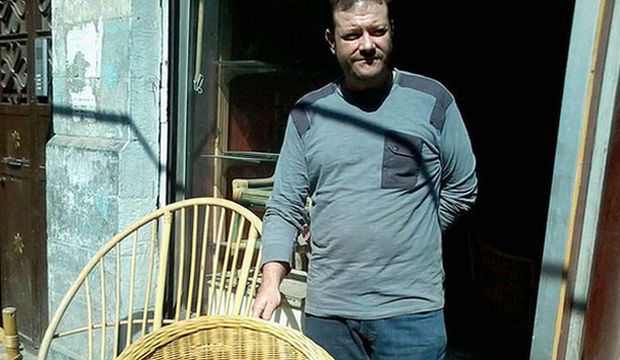In one corner of Damascus, a purveyor of handmade furniture sits despairing in his shop, fearful of what the future holds for his business and those of his colleagues and suppliers. The centuries old traditional Syrian furniture industry seems to be doomed to fall, says Adnan Ahmed, owner of a home furniture store in Damascus.
Prior to the conflict, Syria’s furniture industry suffered from fierce competition from imported goods from Turkey. Despite Syrian furniture being of superior quality, intensive promotional campaigns launched by some business owners encouraged the sale of imported over locally made goods. The conflict that erupted in 2011 delivered the fatal blow to Syrian furniture makers. Most of their factories are located in Eastern Ghouta, specifically in Saqba, a district known for ten years as the capital of Syrian furniture manufacturing but now rebel-held territory in a warzone. Workshops in Irbin, Daraya and Babbila, all conflict areas, have had to cease production. Most of the owners aren’t aware of the fate of their businesses since the majority of them live and have their showrooms in Damascus or elsewhere.
Kamel Al-Khabir, a young Damascene, inherited a showroom in Al-Qanawat, in the heart of Damascus, selling bamboo and wicker furniture. His company’s two workshops are located in Eastern Ghouta and in Al-Asali, southern Damascus. They stopped operating a few months after the war erupted. Khabir knows nothing about what happened to its machinery, worth 500,000 US dollars, and has now had to rent part of his showroom to a barbershop in order to support himself.
Bemoaning the fate of his family business, Khabir showed Asharq Al-Awsat, a collection of certificates and gold medals awarded to his company at furniture exhibitions he attended both inside and outside Syria, including the Paris International Fair. He also points to a banner on the front of his showroom indicating that it was the first business in the Middle East to manufacture the bamboo goods. Khabir says that before the crisis began he was exporting his products to the Gulf states and Lebanon as well as to world-class hotels.
“Our workshops date back to the late 1940s when we began producing bamboo chairs for coffeehouses and celebratory places,” Khabir explains, adding: “We used to import the raw materials from Singapore . . . we trained many craftsmen to make our furniture. Most of those craftsmen are either family members or people who later opened their own workshops, before the 2011 crisis. Now most of these have closed due to their location in Eastern Ghouta.”
Khabir and his family used to employ twenty-two specialized craftsmen at his workshops. When the war in Syria began, they abandoned the warehouses, leaving behind all the stock, including 350 pieces of furniture. They have since heard these were all burned during the conflict.
“Prior to the [Syrian war], importation of foreign furniture, especially from Turkey, was a real disaster to the deeply-rooted Syrian industry.” Khabir says adding that even if work did resume in their factories, it would not be as it was before.
“The price of raw materials—mostly imports such as wood and bamboo—has increased fourfold as a result of the increase in the US dollar, electricity blackouts and the soaring prices of fuel. Thus, we’d have to increase the price of our products and only the rich would be able to buy our furniture,” he explained.
Khabir holds out little hope for the future of his family’s profession. “I think [the industry] will soon become extinct . . . all of my craftsmen have had to emigrate outside of Syria to earn a better living, and now most work in professions aside from furniture manufacturing.”
“Those of us who continue in this industry must be practice it as a merely a hobby or as a way to preserve the tradition, once its craftsmen have abandoned it altogether,” he added, mournfully.

